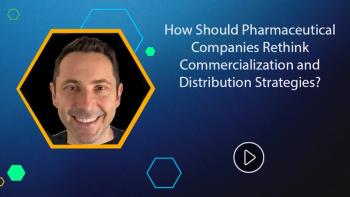
- Pharmaceutical Executive-01-01-2007
- Volume 0
- Issue 0
Leadership: If Bill Gates Ran PhRMA
I've been shocked that physicians haven't rebelled in unison against legislators and academics, at Harvard in particular, and fought back against those who have berated the integrity and ethics of the medical community. Is there anyone who seriously thinks a doctor will write one brand over another because of a ball point pen or a pad of paper?
It's almost too painful to talk about pharma's reputation these days, and, to be brutally honest, PhRMA, which ought to be serving as a powerful voice for what's right about the industry, has really fallen down on the job. Maybe it was a mistake to hand the reins to a Beltway insider. What pharma (and PhRMA) needs is someone who understands the dynamic that's driving the industry's relation with the public.
Sander A. Flaum
Here's the kind of person I'm thinking about: He's built a visionary company from a couple of kids in a garage into a formidable world giant. His products have set a standard for the world—though they frequently don't operate as advertised. He is a watchword for innovation—even though his own product pipeline has occasionally turned up dry. He courts trouble with the anti-trust police, at the same time as his charitable work throughout the world earns him respect as a truly public-minded exec. He is a real-world leader in a world-altering industry.
Imagine: Who on earth has a better idea of how to cope with our problems than—you guessed it—Bill Gates?
What would the software king be like as a pharma spokesman? Let's let this press conference from an alternate universe speak for itself.
SANDER FLAUM: After the Democratic Party sweep of the House and the election of Nancy Pelosi as House Speaker, why did we see a $50 billion drop in drug industry stocks?
BILL GATES: The Democratic campaign and its leadership basically focused on pharma pricing, specifically the restoration of Fed-led price negotiations with Big Pharma on Part D formulary products. So it's no surprise to anyone that we saw a drop in market cap following the sweep. And by the way, quite a few Republicans have jumped on the anti-industry bandwagon, as well.
Your claim to fame is the creation of what has been called the most innovative and respected company this country has seen in 50 years, despite an array of brilliant competitors. How did Microsoft maintain its goodwill and leadership position, and how will you use that experience to help lead the pharmaceutical industry?
Thanks for the kind words about Microsoft. We had and still have a great team of leaders, who work everyday to bring added value in quality to our customers' needs. Additionally, we promote the heck out of our accomplishments globally and unceasingly give back to foster goodwill. That was always the Microsoft strategy and execution plan.
In regards to how that applies to the pharmaceutical industry, it's going to take a lot of work and smarts to get back to where this industry was in the nineties. First of all, we need to clearly discern why pharma has become so disliked and misunderstood—not only by Congress, but also by our past loyal constituents. We have to do a much better job of preempting the bad press, especially the front-page stories on every misunderstood practice, from off-label usage to doctors and nurses accepting informational lunches from reps. We need respectful rebuttal from an industry or company spokesperson to appear in The New York Times and The Wall Street Journal.
Our stoic silence on these troubling stories has proven to be a PR disaster for us. Have you seen a front-page story in the recent past lauding a new HIV drug or diabetes indication, or a story focused on the other scores of great discoveries this industry has come up with? I don't think so.
Is there a strategic plan in place? How do you intend to fix this negativity that has been battering the industry?
First off, we are embarking on a robust campaign to speak to each legislator about the huge downside of having the government negotiate drug prices with member firms. Since the government is the largest and most significant purchaser of drugs, it seems likely that it would probably set prices rather than negotiate them. That's tantamount to dictating to doctors what they can prescribe and what they can't—all based on price. That's clearly a lose-lose proposition for our senior population.
Secondly, we are going to tell each member of Congress, and every key state official, what this industry is doing to bring new and valuable entities to the market. We're still amazed that the incredible story of Herceptin's positive results in early-stage breast cancer, announced November 16, never got a front-page mention in either The New York Times or The Wall Street Journal. Clearly we've lost our editorial linkage and credibility with key members of the press.
Do you think that will be enough to offset public perception of the high price for drugs, particularly in oncology?
There's much more we intend to do. For lower-income patients, we intend to help them traverse the "doughnut hole" through a special PhRMA Assistance Program. For those who don't qualify for Medicaid assistance, but can't afford the medicines they are required to take, each provider of that particular drug has instituted their own "patience assistance" program for qualified patients to obtain their important medications.
Sounds like you're off to a good start. How will you begin a more collaborative relationship with a critical part of the supply chain, your managed-market partners?
HMOs and PBMs have been doing extraordinarily well, both financially and PR-wise. The perception that they alone are holding down drug prices has worked well for them. Our job is to do a better job of partnering with them to continue to develop better disease-management programs and distribute first-class and superior medications to their clients. People deserve and must have the latest and best medications when they become available. There should be no compromising on that issue.
I'm surprised and disappointed at the lack of angry protest by practicing physicians, given some HMOs' seemingly unbendable practice of promoting generics first when there are far superior medications out there for patients.
On that note, how do you feel about some of the new guidelines imposed to curb industry practices, such as withholding physician data from data mining companies in New Hampshire, restricting giveaways in doctor's offices, calling into question KOL advisory trips, and transparent disclosure guidelines?
Frankly, I'm shocked that physicians haven't rebelled in unison against these legislators and academics, at Harvard in particular, and fought back against those who have berated the integrity and ethics of the medical profession. Is there anyone who seriously thinks a doctor will write one brand over another because of a ballpoint pen or a pad of paper?
I hope the AMA wakes up and does its own press relations to defend the credibility of this great profession. Will the HMOs, PBMs, or the AMA pick up the full bill for the necessary CME programs and disease-management initiatives? We are the ones who pay for all this and always have.
Finally, as Alan Murray wrote in his Journal column recently: "It's in everyone's interest for (the industry) to succeed. The pharmaceutical industry's bad bedside manner has earned it a lot of enemies, but its life-saving and life-enhancing products should make it many more friends."
Sander A. Flaum is managing partner of Flaum Partners. He can be reached at
Articles in this issue
about 19 years ago
From the Editor: Left Outabout 19 years ago
Sales Slipabout 19 years ago
Sales Management: Get Committedabout 19 years ago
Marketing to Professionals: Tomorrow's Changes Todayabout 19 years ago
Forecast 2007: Connecting the Dotsabout 19 years ago
Global Report: No Satisfactionabout 19 years ago
Thoughtleader: Peter Pitts, DrugWonks.comabout 19 years ago
Forecast 2007: At SeaNewsletter
Lead with insight with the Pharmaceutical Executive newsletter, featuring strategic analysis, leadership trends, and market intelligence for biopharma decision-makers.




